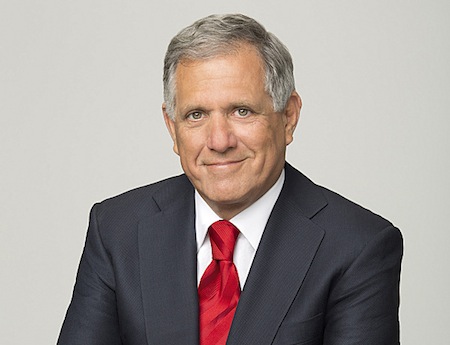Moonves Doesn't Rule Out Selling Spectrum

The smarter way to stay on top of broadcasting and cable industry. Sign up below
You are now subscribed
Your newsletter sign-up was successful
Speaking at the 42nd annual UBS media conference this week, CBS CEO Les Moonves said that given some of the figures being proposed for possible station values in an incentive auction, he could not reject the possibility of giving up some spectrum.
In fact, he said it could present a "great opportunity" for CBS.
Moonves said that he was seeing numbers that indicated spectrum could be worth in the $200 million range per station—the FCC has provided a range of prices, conceding they were high-end estimates. It is conducting outreach efforts to broadcasters, including a chart with some median high-end pricing. New York, for example, is $280 million, though that is a starting price, not what any particular broadcaster might be willing to sell at, which will determine the auctual payout.
But the success of the AWS-3 auction could boost the value of broadcast spectrum as well, some have theorized. That auction, which is still underway, has topped $43 billion for likely less spectrum (65 MHz vs. probably at least 84 MHz of broadcast spectrum and perhaps more).
Moonves said that selling spectrum could affect a CBS station’s ability to broadcast quality HD. That would be if CBS sold spectrum but remained on the air sharing a channel and thus cutting in half the amount it would have. But if CBS affiliates would likely be keeping their full spectrum to air all those big ticket sporting events—sports, in particular, is HD bandwidth-hungry—he said that giving up spectrum could be an option for the CW side of a CBS duopoly.
He noted that nothing happens till 2016—when the broadcast incentive auction is currently scheduled to be held—but “unlike other station groups we’re not saying it’s an absolute no when you’re talking about those numbers.”
"With CBS weighing auction participation maybe NAB will retain an auction-expert economist to help broadcasters get true market prices instead of letting the FCC manipulate the prices down with pop scoring and DRP," said Preston Padden, executive director of the Expanding Opportunities for Broadcasters Coalition (EOBC).
The smarter way to stay on top of broadcasting and cable industry. Sign up below
That is a reference to EOBC's criticism of the way the FCC has proposed to value stations in the auction, including population (pop) in the calculation, and using dynamic reserve pricing (DRP), which Padden has said could doom the auction.
Jon Lafayette contributed to this report.
Contributing editor John Eggerton has been an editor and/or writer on media regulation, legislation and policy for over four decades, including covering the FCC, FTC, Congress, the major media trade associations, and the federal courts. In addition to Multichannel News and Broadcasting + Cable, his work has appeared in Radio World, TV Technology, TV Fax, This Week in Consumer Electronics, Variety and the Encyclopedia Britannica.

